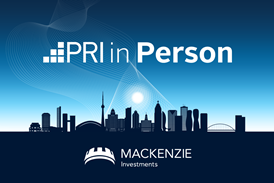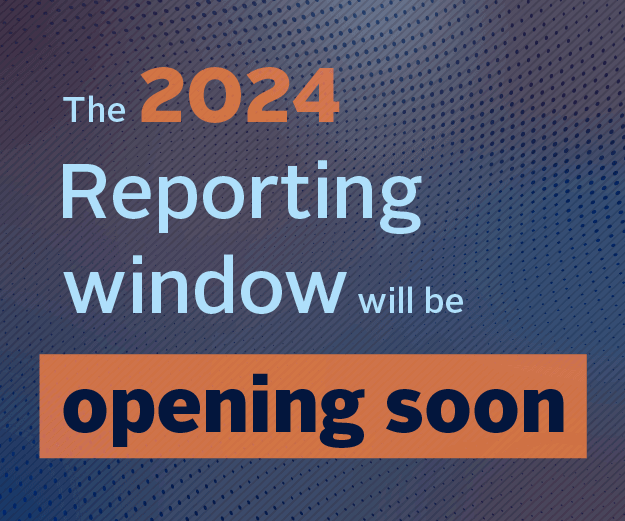Par Annaïg Antoine, Relationship Manager, France, Ben Leblique, Associate, Signatory Relations, Marie Luchet, Director Continental Europe et Blandine Machabert, Policy Analyst, PRI
La conférence PRI in Person, qui se tient cette année à Paris du 10 au 12 septembre, offre une belle occasion de faire le point sur le marché français de la finance durable.
La France a été à l’avant-garde de nombreuses pratiques d’investissement responsable (stratégie best-in-class, labels, fonds solidaires, obligations vertes etc.) et il existe une réelle mobilisation de la Place de Paris vers une intégration plus étendue des enjeux Environnementaux, Sociaux et de Gouvernance (ESG) dans les différentes classes d’actifs. Ce dynamisme se reflète dans le fait que la France est le troisième pays en nombre de signataires des Principles for Responsible Investment (PRI) (220) après les États-Unis et le Royaume-Uni.
L’année 2015 a constitué un point d’inflexion crucial. L’Accord de Paris a clarifié l’horizon des politiques publiques au sujet de la lutte contre le réchauffement climatique et l’article 173 de la loi relative à la Transition Énergétique pour la Croissance Verte (TECV) a créé un précédent mondial en obligeant les investisseurs à être transparents en matière de prise en compte des enjeux ESG et climat. Plus récemment, la loi dite « PACTE » qui oblige les entreprises françaises à prendre en compte les impacts sociaux et environnementaux de leurs activités, a été promulguée. La France est aussi fortement impliquée dans les travaux de la Commission Européenne visant à clarifier les obligations ESG des investisseurs et la mesure de l’impact des investissements dits « durables ».
Par ailleurs, la Banque de France, qui assure le secrétariat du réseau des banques centrales et des superviseurs pour le verdissement du système financier (NGFS), est devenue la première banque centrale à adopter une charte d’investissement responsable l’année dernière. Concomitamment, l’AMF a publié sa feuille de route sur la finance durable dans laquelle elle donne la vision de son rôle de superviseur et protecteur des clients finaux.
Les investisseurs institutionnels moteurs de l’investissement responsable
Les investisseurs institutionnels ont joué un rôle moteur dans le déploiement de l’investissement responsable en France, rôle justifié par la propriété de leurs actifs. Ainsi, beaucoup d’entre eux entendent influer sur les pratiques de marché et ont fait de l’intégration ESG une exigence clé dans leurs mandats. Ce qui explique qu’ils soient très bien représentés parmi les « PRI Leaders 2019 », sélectionnés pour leurs pratiques en matière de sélection des sociétés de gestion (la liste de ces leaders sera divulguée à PRI in Person). D’autre part, plusieurs institutionnels se sont engagés en faveur de la lutte contre les changements climatiques. Ainsi, le FRR a récemment dévoilé une nouvelle stratégie d’investissement dans laquelle il s’engage à aligner son portefeuille sur une trajectoire de 2°C, tandis qu’Axa, la CDC, l’ERAFP et l’Ircantec participent à des coalitions d’investisseurs telles que Climate Action 100+ qui visent à peser sur les pratiques des entreprises.
Ce rôle moteur se reflète dans la croissance du nombre d’institutionnels français signataires des PRI, qui a presque doublé depuis l’ouverture du bureau français il y a deux ans, pour atteindre 24 organisations, dont les deux tiers sont des compagnies d’assurance et des mutuelles. L’AGIRC-ARRCO et SCOR font partie des derniers « arrivants ». Selon nos estimations, nos signataires représentent près des deux tiers des encours sous gestion détenus par les institutionnels en France.
Du côté des 175 sociétés de gestion françaises signataires des PRI, on assiste également à des avancées remarquables. En matière d’intégration ESG, Amundi, Axa IM, BNP AM ou encore la Banque Postale AM ont récemment annoncé leur volonté de devenir 100% ESG. Parmi nos signataires de taille plus modeste, certaines sociétés très dynamiques, telles que Sycomore et Mirova, agissent comme des poissons pilotes en poussant le marché à innover, notamment en matière d’impact. La France est le 2ème pays en nombre de signataires des PRI spécialisés en capital investissement et infrastructures, ce qui met en exergue le déploiement des questions ESG dans ce secteur.
Trois recommandations pour l’avenir
Pourtant, si le marché français de l’investissement responsable est incontestablement avancé, des progrès sont encore « nécessaires afin de financer les objectifs de développement durable internationaux, comme ceux fixés par l’Accord de Paris », selon Martin Skancke, Président du Conseil d’Administration des PRI, qui a conduit la discussion sur la feuille de route de la finance durable pour la France lors de son lancement en novembre 2018. Ce document, préparé par les PRI, l’UNEP-FI et la Generation Foundation, en partenariat avec Finance for Tomorrow, émet des recommandations qui visent à ce que le marché français capitalise sur son leadership et poursuive son développement. Dans cette optique, 70 entretiens avec des investisseurs, pouvoirs publics et associations professionnelles ont permis d’identifier trois enjeux principaux :
-
Clarifier l’obligation, pour les investisseurs, particulièrement les institutionnels, d’intégrer les enjeux ESG dans leurs décisions d’investissement. Alors que le gouvernement français vient de publier un bilan d’application de l’article 173 qui conclut que le reporting de la moitié des investisseurs français n’est pas conforme, il apparait nécessaire de renforcer ces obligations de transparence au-delà de la logique du comply or explain et d’étendre leur périmètre d’application.
-
Renforcer la démocratie actionnariale. La répartition des pouvoirs entre investisseurs et entreprises et les difficultés techniques d’exercice des droits de vote, ne permettent pas toujours aux investisseurs d’intégrer les questions ESG dans le dialogue avec les entreprises. Néanmoins, les travaux européens sur la taxonomie et l’adoption de la loi PACTE (qui transpose la directive européenne sur les droits des actionnaires) devraient apporter des premiers éléments de réponse.
-
Améliorer la collaboration. La concurrence, inhérente à un marché aussi développé, peut rendre difficile la coopération entre acteurs pour développer des méthodologies communes, notamment sur la mesure des impacts sociaux et environnementaux des investissements. Pourtant, la Place de Paris compte nombre d’associations professionnelles et de place qui favorisent les échanges sur ces sujets. Le groupe de travail multi-parties prenantes (entreprises, investisseurs, organisations syndicales, ONG) sur la « Transition Juste » mené par l’Observatoire de la Responsabilité Sociale des Entreprises (ORSE), l’IRCANTEC, AG2R La Mondiale et les PRI en est un bon exemple.
Les équipes des PRI via leurs travaux de recherche, les outils mis à la disposition des investisseurs et leurs échanges avec les différentes parties prenantes au niveau local et global, s’emploient à accélérer le développement de l’investissement responsable en France (notamment grâce au programme francophone) et partout dans le monde.
Rendez-vous donc à Paris la semaine prochaine!
Three recommendations to strengthen France’s leadership on sustainable finance
With PRI in Person taking place in Paris this year from 10 to 12 September, this blog post examines the state of the French sustainable finance market today.
France has historically been at the forefront of many responsible investment practices (best-in-class strategies, labels, social-themed funds, green bonds, etc.), and in recent years the market has moved towards more widespread integration of environmental, social and governance (ESG) issues in different asset classes. This dynamism is reflected in the fact that France now has the third largest number of Principle for Responsible Investment (PRI) signatories (220) after the US and the UK.
2015 was a crucial turning point. Whilst the Paris Agreement provided an international framework for tackling climate change, the Article 173 of the “Transition Énergétique pour la Croissance Verte” (TECV) law set a global precedent by mandating investors to report annually on how they consider ESG and climate issues in their investment decisions. More recently, the regulatory environment has been reinforced by the application of the “PACTE” law, which will oblige French companies to take into account the social and environmental impacts of their activities. France is also strongly involved in the European Commission’s work to clarify investors’ ESG obligations and measure the impact of investments deemed sustainable.
France is also leading international efforts to create a supervisory framework for sustainable finance. The French central bank, which became the first central bank to adopt a responsible investment policy last year, provides the secretariat for the central bank network and supervisors for the greening of the financial system (NGFS). The French financial markets regulator (AMF) has also recently published its sustainable finance roadmap, outlining its role as supervisor and protector of beneficiaries.
Asset owners driving RI
Asset owners have also played a crucial role in the growth of responsible investment in France. Sitting at the top of the investment chain, many French asset owners have been able to influence market practices by making ESG integration a key requirement in their mandates. This explains why they are very well represented among this year’s “PRI Leaders’ Group”, which showcases the leading practices in the selection, appointment and monitoring of asset managers according to ESG criteria (the Leaders’ Group will be unveiled at PRI in Person). A growing number of asset owners are leading the way on climate change – FRR recently unveiled a new investment strategy in which it undertakes to align its portfolio with a 2°C trajectory, while Axa, CDC, ERAFP and Ircantec are all active members of investor coalitions such as Climate Action 100+, pushing the world’s biggest emitters to improve their climate practices.
The number of PRI asset owner signatories in France (24) has almost doubled over the last two years, with public pension fund AGIRC-ARRCO and reinsurer SCOR SE among the most recent signatories. According to our estimates, these signatories represent almost two-thirds of the assets under management of the French asset owner market as a whole.
The 175 French investment manager PRI signatories are also making important strides. Amundi, Axa IM, BNP Paribas AM and La Banque Postale AM recently announced their intention to integrate ESG criteria into all their assets. Smaller, innovative investment managers such as Sycomore AM and Mirova, are pioneering new methodologies for assessing the ESG impact of the companies in their portfolios. France has the second highest number of PRI signatories specialising in private equity and infrastructure, which highlights the importance of ESG issues in these sectors.
Looking to the future
However, while these are all important and positive developments, progress is still “necessary to finance international sustainable development goals, such as those set by the Paris Agreement,” according to Martin Skancke, chair of the PRI Board, who led the discussion on the French Sustainable Finance Roadmap during its launch in November 2018. The report, prepared by PRI, UNEP-FI and the Generation Foundation, in partnership with Finance for Tomorrow, makes recommendations aimed at ensuring that the French market capitalises on its leadership and continues its development. Seventy interviews with investors, public authorities and professional associations identified three key issues going forward:
-
Strengthening requirements for investors, particularly asset owners, to integrate ESG issues into their investment decisions. The French government recently published a stocktake on the implementation of Article 173, concluding that around half of French investors are not complying with ESG reporting requirements. This suggests that there is a need to go beyond the current legislation’s “comply or explain” approach and widen the scope of application.
-
The establishment of a framework conducive to the exercise of shareholder rights. The lack of transparency between investors and issuers and the technical difficulties of exercising voting rights do not always allow French investors to integrate ESG issues into their engagements with companies. Nevertheless, efforts to create a European taxonomy for sustainable activities and the adoption of the PACTE law (which transposes the EU directive on shareholders’ rights) should provide initial solutions.
-
Improved collaboration. The high level of competitiveness in the French sustainable finance market can often make it difficult for different actors to cooperate in developing common methodologies, such as the measurement of social and environmental impacts of investments. Yet there are a number of professional bodies and associations that promote collaboration on these topics within the sector. The recently formed multi-stakeholder working group on the ”just transition” led by the Observatory of Corporate Social Responsibility (ORSE), Ircantec, AG2R La Mondiale and the PRI is a good example of how cooperation can be achieved on important issues that require input from a wide range of stakeholders (companies, investors, trade unions, NGOs, etc).
The PRI, via its research, investor tools and engagements with actors at the local and global level, is working to accelerate the development of responsible investment in France (notably via its francophone programme) and internationally. Rendez-vous in Paris next week!
This blog is written by PRI staff members and guest contributors. Our goal is to contribute to the broader debate around topical issues and to help showcase some of our research and other work that we undertake in support of our signatories.
Please note that although you can expect to find some posts here that broadly accord with the PRI’s official views, the blog authors write in their individual capacity and there is no “house view”. Nor do the views and opinions expressed on this blog constitute financial or other professional advice.
If you have any questions, please contact us at [email protected].









